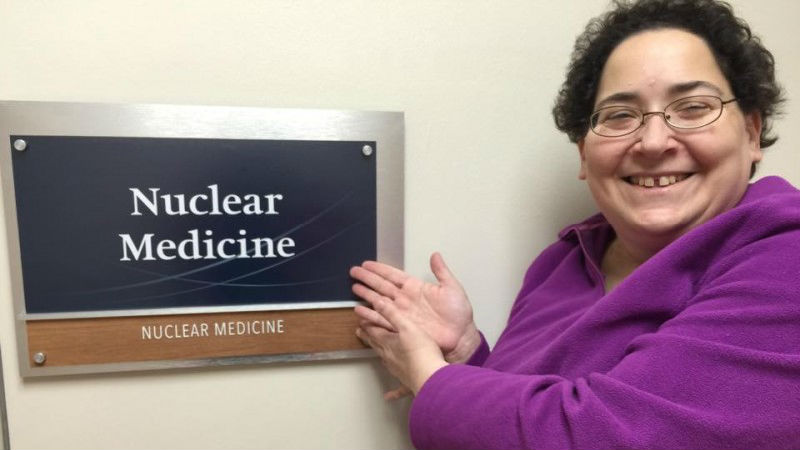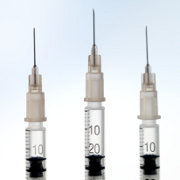It is estimated that there will be 56,460 new cases of thyroid cancer diagnosed in the United States and of those, 1, 780 will die in 2012. It is devastating and frightening to be diagnosed with cancer, but thankfully, thyroid cancer is a cancer with a high survival rate.
There are four types of thyroid cancer. Papillary thyroid cancer is the most common variety and is slow growing so most people recover.
Follicular thyroid cancer is another slow-growing cancer beginning in the follicular cells. It accounts for 15 percent of cases and also has a high recovery rate.
Medullary thyroid cancer starts in the C cells of the thyroid and is easier to treat if caught before it spreads to other areas of the body.
Anaplastic thyroid cancer is the rarest variety, accounting for 2 percent of cases. It starts in the follicular cells of the thyroid and spreads very quickly, and so is difficult to treat.
Symptoms of Thyroid Cancer
• Swelling of the glands in the neck
• A lump in the neck
• Sore, painful throat
• Painful neck
• Difficulty swallowing food
• Difficulty breathing
These symptoms may be indicative of something else other than cancer, for instance, hyperthyroidism, but it is important to get checked by a doctor.
Diagnosis
The doctor will perform a physical examination of your neck and look for any lumps and swelling of the glands. He may also take blood to check for levels of thyroid stimulating hormone (TSH) and other studies.
Not enough of this hormone, or too much, can mean your thyroid isn’t working correctly. He may also check other hormones to rule out or confirm other thyroid diseases.
A thyroid scan may be ordered. By swallowing a radioactive iodine substance, your cells will be more visible on a scan. The cells that take up most of the radioactive substance are thought to be normal cells.
Ones that don’t take up the iodine are known as ‘cold’ nodules and may be cancerous. This is confirmed by a biopsy.
A biopsy is done by inserting a fine needle into the lump and extracting a sample. This will then be analysed under a microscope to see if it is cancerous.
Sometimes it isn’t possible to get enough of a sample to make a diagnosis using a fine needle, so a surgical biopsy will be done instead.
Ultrasound can also be used to produce images of the thyroid and show up any nodules that are too small to be felt on examination.
Treatment
Your treatment depends on the type of cancer you have and how far it has spread. Treatments for thyroid cancer include:
- Surgery (to remove part or all of the thyroid)
- Hormone replacement pills (to give you the required hormones that your thyroid would have done)
- Radioactive Iodine (to kill the thyroid or any remaining cancer cells that may still be there)
- Chemotherapy and radiotherapy can be used, but they are not often used unless cancer has spread throughout your body or has recurred after treatment.
You may be given the name of a dietitian to advise you on healthy diet to help you recover from cancer.
Remember, stay positive, the majority of people do recover from thyroid cancer!
Sources:
Thyroid Cancer, National Cancer Institute. Web. 25 January 2012. http://www.cancer.gov/cancertopics/types/thyroid
What You Need To Know About™ Thyroid Cancer, National Cancer Institute. Web. 25 January 2012.
http://www.cancer.gov/cancertopics/wyntk/thyroid
Joanna is a freelance health writer for The Mother magazine and Suite 101 with a column on infertility, http://infertility.suite101.com/. She is author of the book, 'Breast Milk: A Natural Immunisation,' and co-author of an educational resource on disabled parenting.
Reviewed January 25, 2012
by Michele Blacksberg RN
Edited by Jody Smith






Add a Comment1 Comments
Follow-up for thyroid cancer patients is very important. Even if a "clean" bill of health is given, annual testing is a good practice. Thyroid cancer can recur many years after treatment.
January 30, 2012 - 5:37pmThis Comment